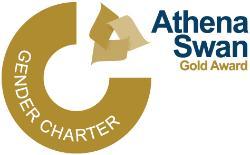Guidelines and policies
SHW guidance on staff entitlement to personal and professional development time

Introduction
It is university policy that early career academics (ECAs) have up to 10 days pro-rata per year for their personal and professional development. SHW has additionally agreed that professional services staff up to and including grade 5 are also given this opportunity.
These guidelines may be used for both job families and there should be discussion between individual staff members and their line manager to make best use of this time while meeting business needs.
"It’s a chance for you to invest in your development and work towards your personal, professional and career goals. This investment will enable you to embrace and reflect on your current skill set, putting them in context with your career goals and ambitions, while also identifying what new skills or further development you need to develop to meet your goals." UofG: Your professional development
Scope
This guidance concerns:
- Early career academics – defined as R&T/R-only grades 6 and 7
- Professional services staff up to and including grade 5, and MRC band equivalents
The guidance does not cover staff above these grades. This is because at these grades the distinction between "personal and professional development", grade role descriptors, and expected contributions to unit/institute overall performance indicators is more fluid, and guidance unlikely to be helpful.
Purpose
The guidance seeks to ensure equality of opportunity for all ECA/professional services staff at the above grades to develop professional skills and experience, and strengthen their CV. It is intended to guide decisions on personal and professional development, and balancing of workload priorities.
Guidance
Personal and professional development activities are those which fall outside of the core duties for which the individual has been hired and/or fall outside of the role descriptors on the individual’s job description. Activities should be broadly relevant to individual roles and should enhance skills that are beneficial to the university. It is not the type of activity that is important, but whether it falls inside or outside of the core role descriptors for that individual.
- The basic principle is that ECAs (grades 6 & 7)and professional services staff (up to and including grade 5) are entitled to have a minimum of 10 days per year (equivalent to 5% of time/2 hours per week) to spend on personal and professional development (pro-rata for part-time staff).
- For research staff, the purpose of this time is to enable them to progress against the 12 domains of the Researcher Development Framework. For professional services staff, the purpose is to support their contribution both to the success of the organisation and to their own individual success, as defined in the Glasgow Professional Behavioural Framework.
- It is up to the individual staff member how they spend this time, with guidance and agreement from their line manager. Staff may also seek guidance from a mentor, if they have one. Unless there are good reasons why time out would harm core work, line managers should work towards agreement. At the same time, line managers should be free to challenge poor ideas, ensure staff are using their time well and guard against exploitation.
- Researchers funded by more than one external project, or by a combination of core and external, should split this time proportionally to their time allocation on each source of funding.
- Individual staff members and their line manager should discuss and agree which of their planned or potential activities count as personal and professional development. If agreement cannot be reached, Research Group leads should be consulted by research staff, and the SHW Unit Administrators Group by professional services staff.
- The annual Performance and Development Review is a key opportunity for such discussions, but there may need to be further discussion throughout the year as opportunities for personal and professional development arise. Mentors can also play a valued role in helping individuals identify, or choose between, opportunities.
SHW executive group
April 2022
- Glasgow Professional Behavioural Framework
- Reseacher Development Framework
- SHW Athena Swan ECR working group
- SHW Athena Swan professional services working group
- SHW Athena Swan career progression working group


